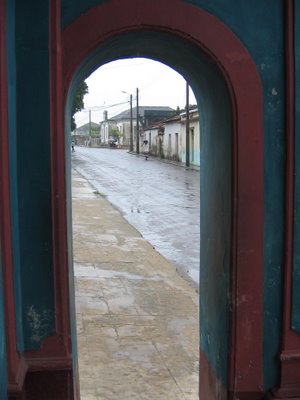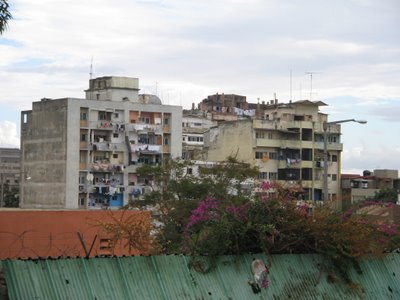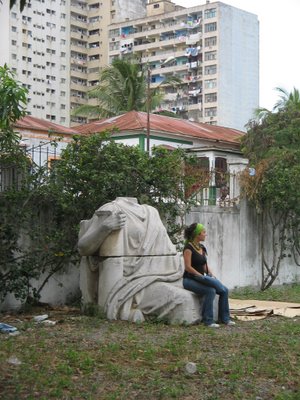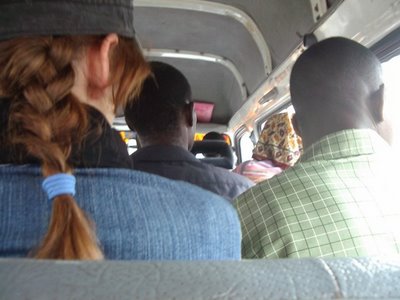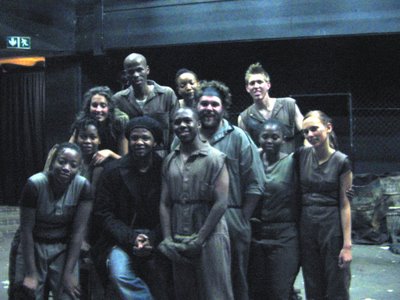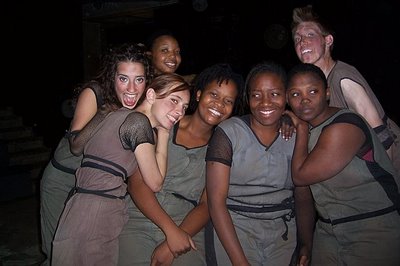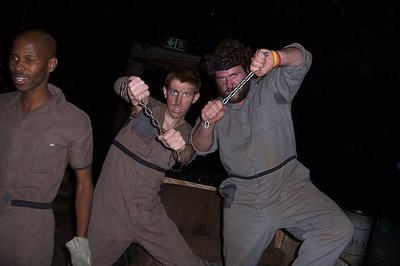Antjie Krog is an Afrikaans speaking writer who now often works in English. Her book "A change of tounge" talks about the many changes the Afrikaner comunity has had to go through since the fall of Apartheid. She deals in a lot of her writing with how one deals with the guilt that comes from being the oppressor in a way that is wonderful and moving and inspiring and heartbreaking. I highly recomend her.
In my project on Afrikaans language theatre after 94 I came across this essay on translating Nelsen Mandela's Autobiography into Afrikaans. I think it is incredibly lovely so I typed up some of it for you:
However, the biggest decision that has to be made concerns the word ‘Africa.’ Who and what is an African? Mandela uses ‘African’ quite often in his book, but in a rather haphazard way: at the beginning ‘African’ means only the Thembu, then it means the Xhosa, and theater on it refers to everybody black. She enquires about Mandela’s use of the word, and is sent the following answer by his office: he means blacks and coloreds – the Indians and the whites are from the other continents, the blacks and coloreds not.
This may be Mandela’s logical explanation, but during the Treason Trial he used ‘African’ for everyone who wasn’t white, and on Robbin Island he told one of the Afrikaner warders that he was also an African.
The most important question must therefore be answered first: should she follow Mandela’s judgment on the meaning of ‘African’, or should she interpret his use of the word in context, to say that now he means ‘black in general,’ and now he means ‘not white,’ and now he means ‘only black and not colored or Indian?” Although interpretation is part of a translators work, this would perhaps be stretching it too far. In any case, Mandela’s own emotion enlargement of the concept of ‘African’ is an important motif throughout the story itself.
Then for the second obstacle. If she does retain Mandela’s use of the word ‘African’ as it occurs, what shape should the word take in Afrikaans?
…
“Maybe it is time that Afrikaans eyes and ears become used to the word “Afrikaan” in all its grammatical forms, instead of it always seeming , strange, like an imported construct.”
Of course, the word “Afrikaan” is used in Afrikaans but as an adjective it causes real problems. A man from America is an ‘Amerikaanses man’ or and ‘Amerikaner’. A man from Africa ought to be and ‘Afrikaanse man’ or and ‘Afrikaner’, but white Afrikaan speakers awarded themselves these titles centuries ago. As a result, Mandela cannot now be the Afrikaans equivalent of an ‘Afrikaansche man’ or ‘afrikanische Mann’ which onw would find in the Dutch and German translations – unless a serious broadening of the term is in the cards [See appendix 3]! The alternative is to use ‘Afrikaan man’ and ‘Afrikan’, but because this sounds so incorrect grammatically, most speakers simply use the word ‘Afrika’ as in ‘Afrika man’ or ‘man van Afrika’, which in turn leads to further confusion of meaning. ‘Afrikaan nasionalisme’ and ‘Afrika nasionalisme’ are surely two different concepts. If she uses this ‘new’ word, then Fort Hare will be an ‘Afrikaan’ university but Stellenbosch an ‘Afrika’ university.
Writers like Frantz Fanon and Es’kia Mphahlele have insisted that it is important after liberation to rethink society and rename it imaginatively. So as to ensure that old concepts and ideologies do not continue in the guise of the new. SO for her it is very moving to see how the word ‘Afrikaan’ for the first time finds its balance in a paragraph and rigs its sails to the winds of change: ‘’n Afrikaan kind word gebore in ‘n Afrikaan hospital, huis tow geneem in ‘n Afrikaan bus, leef in ‘n Afrikaan woonbuurt en woon ‘n Afrikaan skool by…” [An African child will be born in an Afican hospital, will go home in an African bus, will grow up in an African township and attend an African school.]
